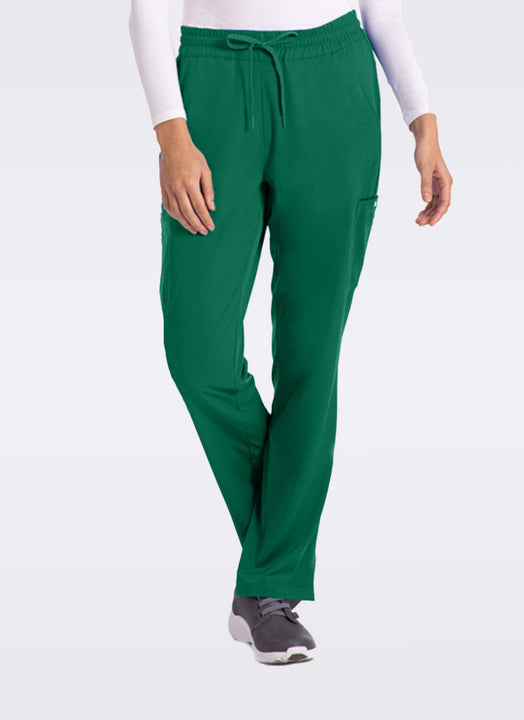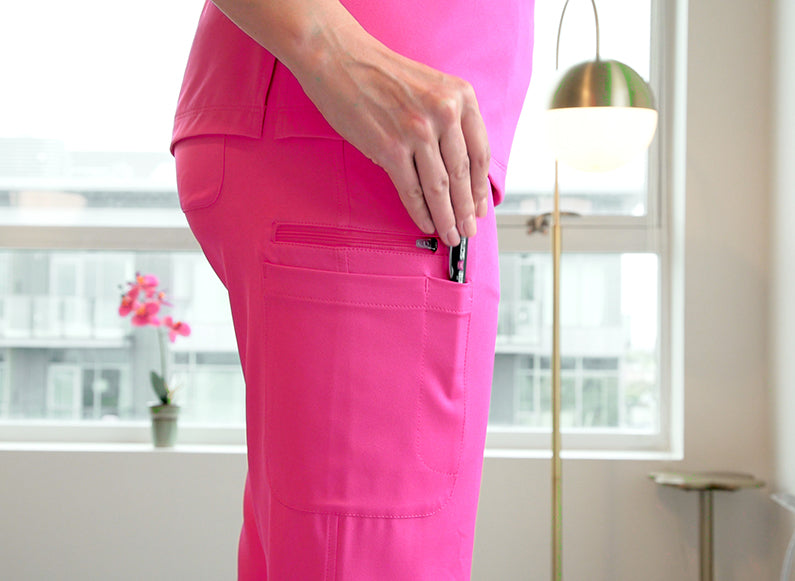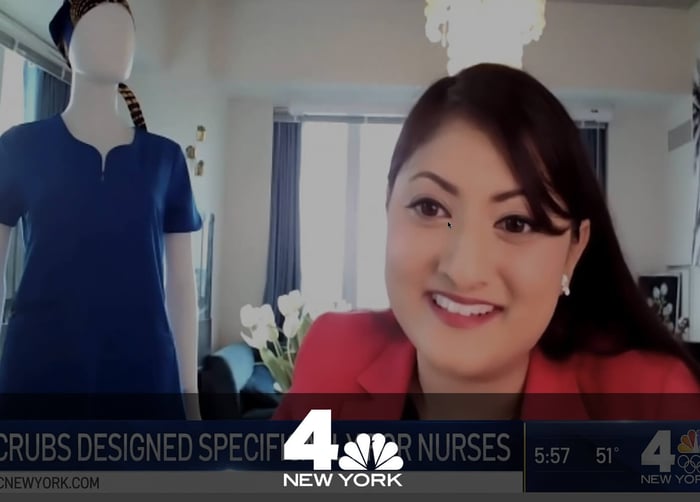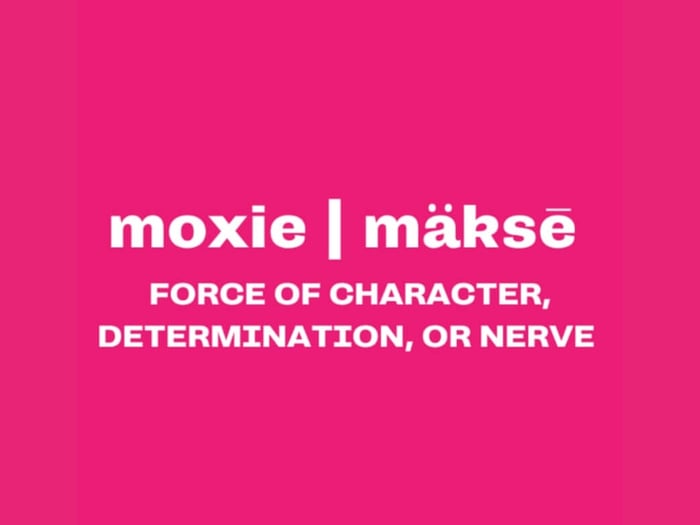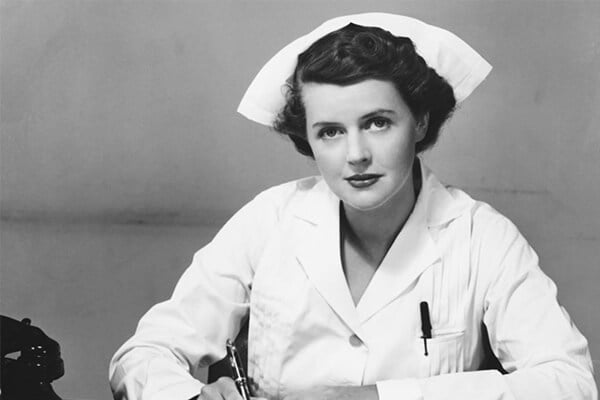As a part of our series about “Why We Need More Women Founders”, I had the pleasure of interviewing Alicia Tulsee of Moxie Scrubs.
Alicia Tulsee is a native New Yorker and Harvard alum, based in Boston, MA, and is the founder of the first direct-to-consumer medical apparel brand for nurses, Moxie Scrubs.
In awe of all of the amazing nurses who cared for her loved ones, Alicia felt a calling to do something meaningful for the nursing profession and founded Moxie Scrubs out of Harvard University’s Innovation Lab with the passion to create a brand dedicated to giving nurses the sense of fashion, professionalism, and respect that they want and deserve.
‘Moxie’ defines the ‘force of character, determination, and resourcefulness,’ of the nurses across our country on the frontlines today; More than a brand, this is a movement.
Thank you so much for doing this with us! Before we dig in, our readers would like to get to know you a bit more. Can you tell us a bit about your “backstory”? What led you to this particular career path?
Thank you for having me! My backstory, where to begin?
I had a very eclectic NYC childhood. I grew up Christian, Jewish, and Hindu. I was born and raised in Queens, NY and my parents emigrated to America from the Caribbean, Trinidad and Tobago, in the West Indies. My early career started in the music industry; however, I also worked for local non-profit organizations.
My father went back to college when he came to the U.S. to become an astrophysicist. He worked for the Hayden Planetarium and previously did the research for NASA. In his later days, he taught at Medgar Evers Community College.
My mother is where my entrepreneurial streak comes from. Before she came to the U.S., she was a talented fashionista and General Manager for Levi’s factory. She owned several small businesses at different times throughout my childhood, but the most impressionable of them on me was her small cut and sew factory out of our home. She sewed for Baby Gap and Osh Kosh. I remember running around all over Manhattan with her and my dad picking up things like garment patterns and fabric chalk.
My parents were non-traditional and unlike other people from the West Indian community, and the apple didn’t fall too far from the tree. They supported all of my crazy endeavors from being on my H.S. crew team to me starting my own small business at 19. I’ll never forget them waking up at 5 am every Wednesday, Friday, Saturday, and Sunday to help me pack all of my merchandise in our van and set up my stall at the Aqueduct Flea Market.
Moxie Scrubs could not exist today without them and these experiences. My music and non-profit background taught me the strength of being part of a community, my father taught me the importance of education, and my mother most importantly taught me to keep going and not be afraid to start something of my own.
Can you share the most interesting story that happened to you since you began leading your company?
The story of Moxie Scrubs starts before Moxie Scrubs was incorporated. I launched the brand in December of 2019, after the experience of being part of another medical apparel venture that didn’t work out. I call it my crash course MBA. However, from this exposure to the industry, I couldn’t believe that no one had given nurses a brand of their own.
With the support of our early-stage investors, I launched a pre-seed raise. Little did I know, a pandemic would hit and the world would come to a sudden halt. Even though this became a time that most startups were put on hold or came to an end, the Covid-19 pandemic instead shined a light on the importance of a brand and mission like ours. We were able to raise our pre-seed round over-subscribed.
It was not an easy raise or journey as you can imagine. The world was facing so much chaos and uncertainty. I also ended up falling sick for three months with what appeared to be Covid-19 (however with a negative test result). Even though I was ill during all of that time, I would hop on every single call and I applied to several accelerator programs. I was thrilled to be accepted into MassChallenge and Ember Lab (formerly known as TrendSeeder).
Can you share a story about the funniest mistake you made when you were first starting? Can you tell us what lesson you learned from that?
The funniest mistake I made was not getting follow-up contact information from Tommy Hilfiger himself when I whisked him away in person. He visited the Harvard Innovation Lab after giving a talk at Harvard Business School. He was of course surrounded by a crowd of admirers, and I had the ‘Moxie’ to go right up to him, pull him away from the crowd, and bring him over to my table. I got to pitch him on why medical apparel is the next big thing, and then of course ask him if he wanted to collaborate — to which he enthusiastically said yes he’s interested! Well, I’m still waiting for that follow-up! Lesson learned!
None of us are able to achieve success without some help along the way. Is there a particular person who you are grateful towards who helped get you to where you are? Can you share a story about that?
I agree that none of us are able to achieve success without some help along the way, I never understood the expression, ‘it’s lonely at the top.’
There are so many people that I attribute my successes to; from teachers like professor Joel Evans at the Borough of Manhattan Community College to the many supportive professors and mentors at Harvard University and our advisory board members such as Michael Neece or Daniel Doctoroff. Although I could not pick just one sole individual, if I could narrow it down to two people that would live at the top of the list; it would be Marilyn Lehman and Alisa Doctoroff.
My mother came to America as an au pair for the Lehman family who sponsored her and gave her the opportunity to become an American citizen. She arrived in the United States of America alone with two suitcases, $200 US dollars in her pocket, and just the support of her cousin who helped care for me as a baby while my mother worked in her live-in job.
After some time, my mother told Marilyn, (who we call Macky), that she had a daughter and wanted to spend more time with me. Macky and her husband Peter said, ‘well bring your daughter to come to live with us!’ I lived and grew up with them until I was maybe ten years old. Growing up with the Lehmans was like winning the lottery for the child of an immigrant parent. Their kindness and love to this day I am eternally grateful for.
Ok, thank you for that. Let’s now jump to the primary focus of our interview. According to this EY report, only about 20 percent of funded companies have women founders. This reflects great historical progress, but it also shows that more work still has to be done to empower women to create companies. In your opinion and experience what is currently holding back women from founding companies?
Women don’t have the same advantages as men, as society has many more expectations of us. As a woman, you’re starting at a disadvantage, however as a man, you have a head start. You are treated differently as a woman founder and it’s an unfortunate truth that you have to work even harder as a woman founder of color.
The number one thing holding women back from founding companies today is not a lack of desire, skill, or ambition; I believe it is the lack of an equitable system that gives women the same kinds of opportunities that are more readily available to men.
Can you help articulate a few things that can be done as individuals, as a society, or by the government, to help overcome those obstacles?
As an individual consumer, support local, women founded businesses. Every dollar that you spend is your vote toward what you want to see advanced in the world, so make sure your spending aligns with your values. As a society, vote for representatives who advocate for fair and inclusive policies. Roughly only 5% of VC funds are given to female founders, yet there are so many wonderful female driven projects that are beneficial to the world and unfortunately do not gain traction as easily due to the lack of easy-to-access resources for them. I don’t believe this is happening on purpose however. For example, as a government we can incentivize firms to invest in diversity and women led organizations.
This might be intuitive to you as a woman founder but I think it will be helpful to spell this out. Can you share a few reasons why more women should become founders?
Women are natural problem solvers and natural innovators. A recent study from The Boston Consulting Group states that women-owned startups deliver twice as much per dollar invested than those founded by men, although they receive significantly less financial backing than men. The Clinton Global Initiative cited that women will invest 90% of their income back into their families, whereas men would only invest 35% of it. In a society with more women founders, one can naturally anticipate more economic progress and see a path to improved health and education outcomes for all.
What are the “myths” that you would like to dispel about being a founder. Can you explain what you mean?
The biggest myth for me was: Hire the Most Experienced People You Can Find
The Reality: Early-stage startups need to be lean and scrappy. For example, find a social media manager that can also design email campaigns and write copy, who will stay up burning the midnight oil working on deliverables with you. Bonus points if they know their way around a camera.
The biggest takeaway from this — Focus on hiring generalists: Problem solvers and lateral thinkers with the aptitude to get things done.
Is everyone cut out to be a founder? In your opinion, which specific traits increase the likelihood that a person will be a successful founder and what type of person should perhaps seek a “regular job” as an employee? Can you explain what you mean?
As this interview highlights, by just being a woman you are less likely to become a founder; you are less likely to raise capital, the road will be even harder for you, and you will be paid less. When you add socioeconomic status and social welfare into the equation, you begin to understand why not everyone is “cut out” to be a founder.
In regards to one’s career and specific traits for example, I couldn’t say what makes one more inclined over another for either path. But I can say, I could not imagine myself doing anything other than what I am doing today. I think this is the kind of passion it takes to become a successful founder. But for non-founders, I think many individuals can get the same kind of satisfaction from a job that aligns with their values and ambitions. It comes down to what gives someone satisfaction and purpose and it doesn’t make one any less if they are fortunate to gain this from their employment. It keeps me up at night hoping that Moxie Scrubs’ employees are feeling satisfaction and fulfillment from what we are building, it surely has not been easy!
Ok super. Here is the main question of our interview. What are your “5 Things I Wish Someone Told Me Before I Started” and why? (Please share a story or example for each.)
Fire-fast. I learned this lesson the hard way and more than once. Each dollar is worth more today to your startup than it is in a later-stage company because each dollar is an investment in your company’s future. Fire-fast because if you are paying someone who isn't working out, it’s a bad investment and might actually be costing you more than you think.
Hire people you wouldn’t mind running into at 3 am in the airport. As a founder, hiring the wrong person can be detrimental to your company’s culture and your mental health more than you may realize. We experienced this during the pandemic during all of the political turmoil this year. I could not believe what this brought out in people.
It always takes longer than you think. I launched Moxie Scrubs in December 2019 and kicked off our pre-seed raise, however shortly after a pandemic hit and the entire world shut down. We were supposed to receive our goods in the summer of 2020 and we only just received them this past February 2021. It always takes longer than you think, plans and raise accordingly!
Celebrate all of your wins. Often as founders, we feel like our actual job is putting out and preventing fires. I learned very recently that it is paramount to celebrate all of the little successes, however. Every success, big or small, is a step forward for your company. Celebrating the small wins helps keep you and your team motivated because it represents celebrating that your startup is moving forward.
Identify sunk costs quickly. If you aren’t making mistakes, you aren’t learning, and when you do make a mistake, recognize it quickly — learn the lesson, and move on. As a founder, every single decision you make is an investment. Recognize the bad ones and mitigate your losses.
How have you used your success to make the world a better place?
The mission of Moxie Scrubs is to enhance, inspire, and empower the MOXIE in every nurse.
We do this by enriching the lives of nurses through promoting wellness, self care, community, and good mental health practices. In doing so, we have partnered with wellness brands such as Evolution_18, to Nursing organizations like The American Nurses Association, BoardVitals, and others to provide nurses with the resources they need to be happy and healthy in their career and life in between. More than a brand, Moxie Scrubs is a movement to change the status quo in the nursing profession.
As I like to say, People might forget what you said but people will never forget how they made you feel. That’s what we are here for!
You are a person of great influence. If you could inspire a movement that would bring the most amount of good for the greatest number of people, what would that be? You never know what your idea can trigger.
Our healthcare workers are not healthy and I am not okay with this reality. Ongoing and recent studies have shown that nurses are more likely to be overweight, have higher levels of stress, and get less sleep. All of this became worse during the pandemic and there has been an unfortunate increase in nurse suicides. It’s time for us to care for our caregivers, this is the movement we are working to inspire. We want to be a beacon for nurse culture and a resource that nurses can look to fill their cup from.
We are very blessed that some very prominent names in Business, VC funding, Sports, and Entertainment read this column. Is there a person in the world, or in the US with whom you would love to have a private breakfast or lunch, and why? He or she might just see this if we tag them.
I would absolutely love to meet Guy Raz! “How I Built This” tremendously inspired me, and continues to educate and motivate me. From dealing with the very tough exit from the previous startup to going off on my own and starting Moxie Scrubs during a pandemic, I listen to all of my favorite episodes over and over again for the support, inspiration and insight, and guidance.
$39.99
Note: This design runs large, we recommend going a size down for the right fit.DESCRIPTION The Catherine Scrub Pants are the must-have item in your selection of comfortable and professional workwear. At Moxie, we have taken the classic straight leg… read moreCatherine Pants
